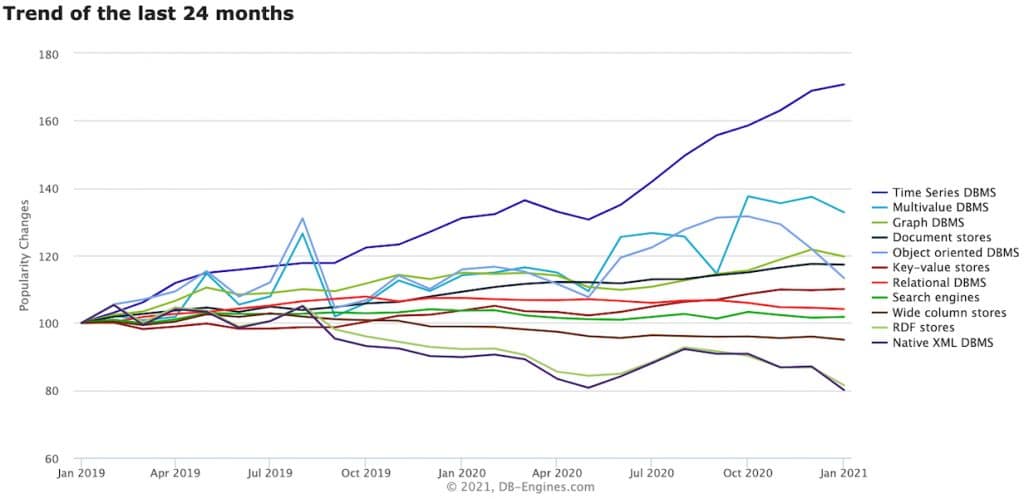The rise of the time-series database
This certainly caught me off guard. Graph databases have been leading the popularity contests for the last five or six years, but in the last twenty four months Time Series databases have leapt ahead, as this DB-Engines chart dramatically demonstrates. Peter Wayner looks at why.

Medium is adding ebooks to its business
Business models based on being both a publisher and a platform have always been fraught. In some ways Medium has managed this better than most. They just acquired “social ebook platform” Glose, but it’s not clear how this fits into their platform/publisher model. One clue may be Ev Williams’ earlier statement that Medium’s…
top-line metric is “TTR,” which stands for total time reading. It’s an imperfect measure of time people spend on story pages. We think this is a better estimate of whether people are actually getting value out of Medium.
But in a short post about the acquisition Williams says they “are not planning to bundle books into Medium Membership, though there could be book-related benefits. TBD.”
Ethical issues in privacy, advertising and machine learning
Informed and interesting interview with Oxford philosopher Dr. Carissa Véliz. Don’t worry, this is not a long dry treatise, but an engaging and accessible discussion that does not require a technical or philosophical background.
Facets of faceted search
Both search engine developers and users treat facets as useful for refining broad search queries. But there’s a tendency to conflate broad queries with ambiguous queries. There’s an important distinction between the two.
Fortunately, we have the ever-reliable Daniel Tunkelang to explain.
Also…
- If you need to get caught up… The decentralized internet is coming, sometime? via Protocol Source Code
- Fun version… Web conversations with the year 2000, and serious version follow-up… Web conversation from the other side, via Paul Ford
- Ethereum seems to be having a moment, and not only in ETH… The Ethereum 2.0 Beacon Chain is here. Now what? via Consensus
- NLP just keeps on giving… Natural language predicts viral escape …via MIT Technology Review
The Gilbane Advisor is curated by Frank Gilbane for content technology, computing, and digital experience professionals. The focus is on strategic technologies. We publish more or less twice a month except for August and December. We also publish curated content technology news weekly We do not sell or share personal data.
Subscribe | Feed | View online | Editorial policy | Privacy policy
